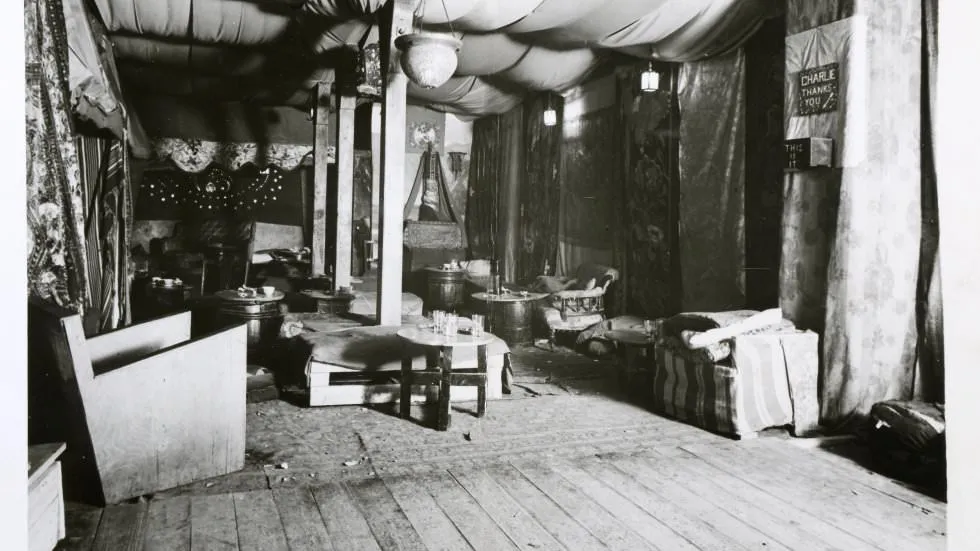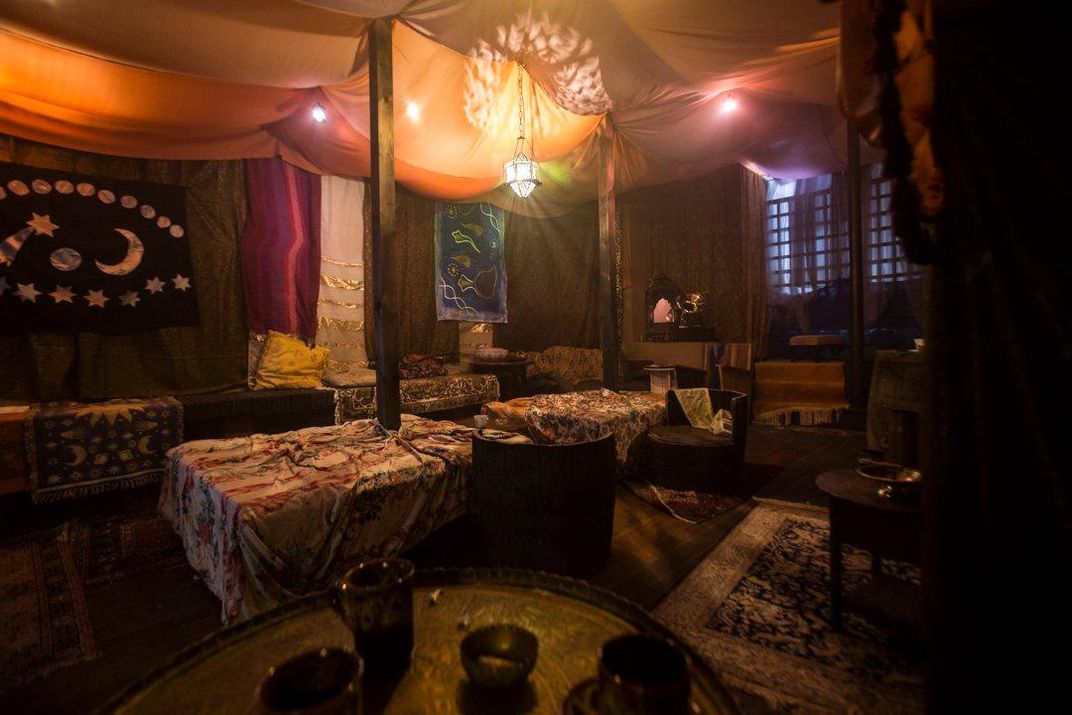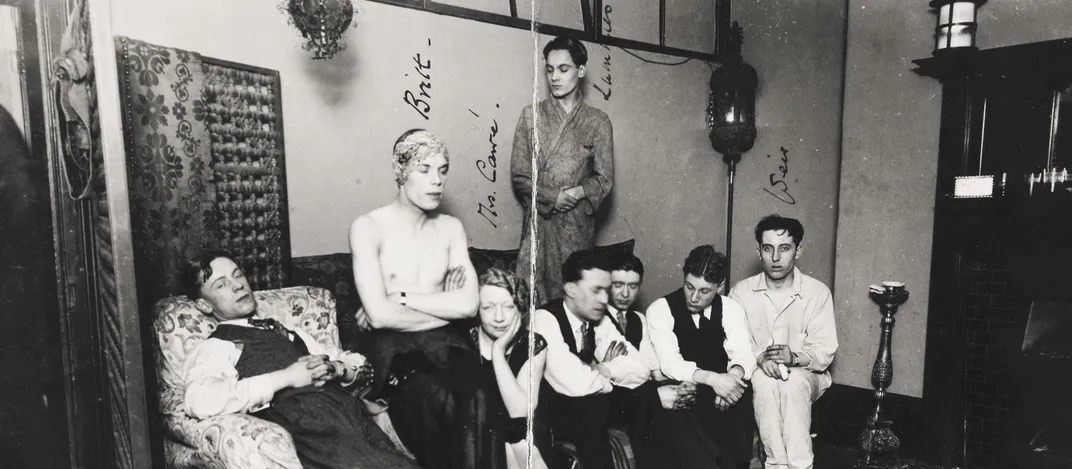This Short-Lived 1930s Speakeasy Was a Sanctuary for Gay Londoners
And now you can visit a recreation
If you were a gay person in London in the 1930s, you faced the very real risk of arrest, prosecution and harsh punishment for expressing yourself in public—and even in private. Now, The Guardian’s Mark Brown reports, there’s a chance to explore the underground world of yore at a recreation of a short-lived speakeasy that was once one of London’s most infamous and illegal clubs.
It was called the Caravan Club, and it gained quite the reputation during its brief existence. Just one of an entire world of temporary underground spaces for LGBTQ people to meet, the club was hidden in a basement near Covent Garden and was open to members only. Now it’s been recreated for 21st-century visitors to explore, thanks to the efforts of Britain’s National Trust and National Archives.
The recreated club captures the dramatic and lavish interior of the venue, which was open only from October 1933 to August 1934 when it was raided by police. It’s located in a current-day bar, close to the nightclub’s original location and features wall hangings, carpets, and intimate seating like the original—decor reconstructed using descriptions, court documents and police reports of the day.
As the National Trust writes on its website, the venue will be open throughout March for “club members” who will be able to buy bespoke, vintage-era cocktails and party there—or attend talks, debates and performances celebrating the club’s legacy.
But it's impossible for visitors to know what it would have been like to be living as a gay person during that period, under surveillance and constant threat of imprisonment when they went out with friends. As Brown writes, the Caravan Club was known as one of London’s most unconventional bohemian hotspots. That notoriety meant it was carefully watched by police. The August 1934 raid saw police breaking up same-sex dance parties and arresting 103 men and women in total. Though a majority were found not guilty on condition of never frequenting another nightclub, Brown reports, a few had to serve long prison sentences and even perform hard labor for daring to be gay in the private venue.
It took decades for homosexual activity to become decriminalized in England, which eventually happened in 1967. As SmartNews reported last year, the British government struggled over whether to pardon people convicted of “gross indecency” for homosexual activity—an estimated 15,000 of whom are still alive. Posthumous pardons were finally granted last month. 2017 just happens to be the 50-year anniversary of the repeal of the law, too—and there may be no better way to commemorate those whose most intimate lives were restricted than by giving a nod to the creative ways they found to celebrate anyway.
(h/t artnews)
/https://tf-cmsv2-smithsonianmag-media.s3.amazonaws.com/accounts/headshot/erin.png)



/https://tf-cmsv2-smithsonianmag-media.s3.amazonaws.com/accounts/headshot/erin.png)